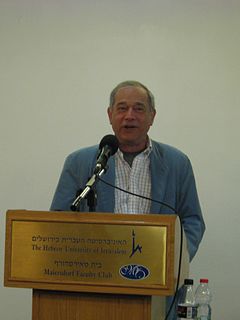A Quote by Steven Pinker
Humans are so innately hardwired for language that they can no more suppress their ability to learn and use language than they can suppress the instinct to pull a hand back from a hot surface.
Related Quotes
Photographers learn to interpret photographs in that technical way because they want to understand and use that 'language' themselves just as musicians learn a more technical musical language than the layman needs. Social scientists who want to work with visual materials will have to learn to approach them in this more studious and time-consuming way.
I think language is a system that we have devised to negotiate a series of more amorphous entities. It's a layer you can use to see where those things exist, but if you don't have anyone speaking anymore, those things are still there. The things that language stands for do not require humans, and in fact are often trampled down by humans.
Religion is much more than language, but to be Christian does mean speaking Christian for most people. The language many of us use has contributed to the crisis in Christianity in North America. Traditional Christian language is becoming less familiar to millions of people. The language is frequently misunderstood by people.
Text input is certainly useful, but images and speech are a much more natural way for humans to express their queries. Infants learn to see and speak well before they learn to type. The same is true of human evolution - we've had spoken language for a long time compared to written language, which is a relatively recent development.
I feel like it's not so much a tradition as a system that has been codified over the centuries starting in the Renaissance that applies to any painted surface. So if you're engaging in paintings, this is the language that one has to learn and is obliged to speak. I was very fortunate that I learned this language when I was a kid before I went to California, where I learned the language of attitude. Somehow the two things began to coexist.




































